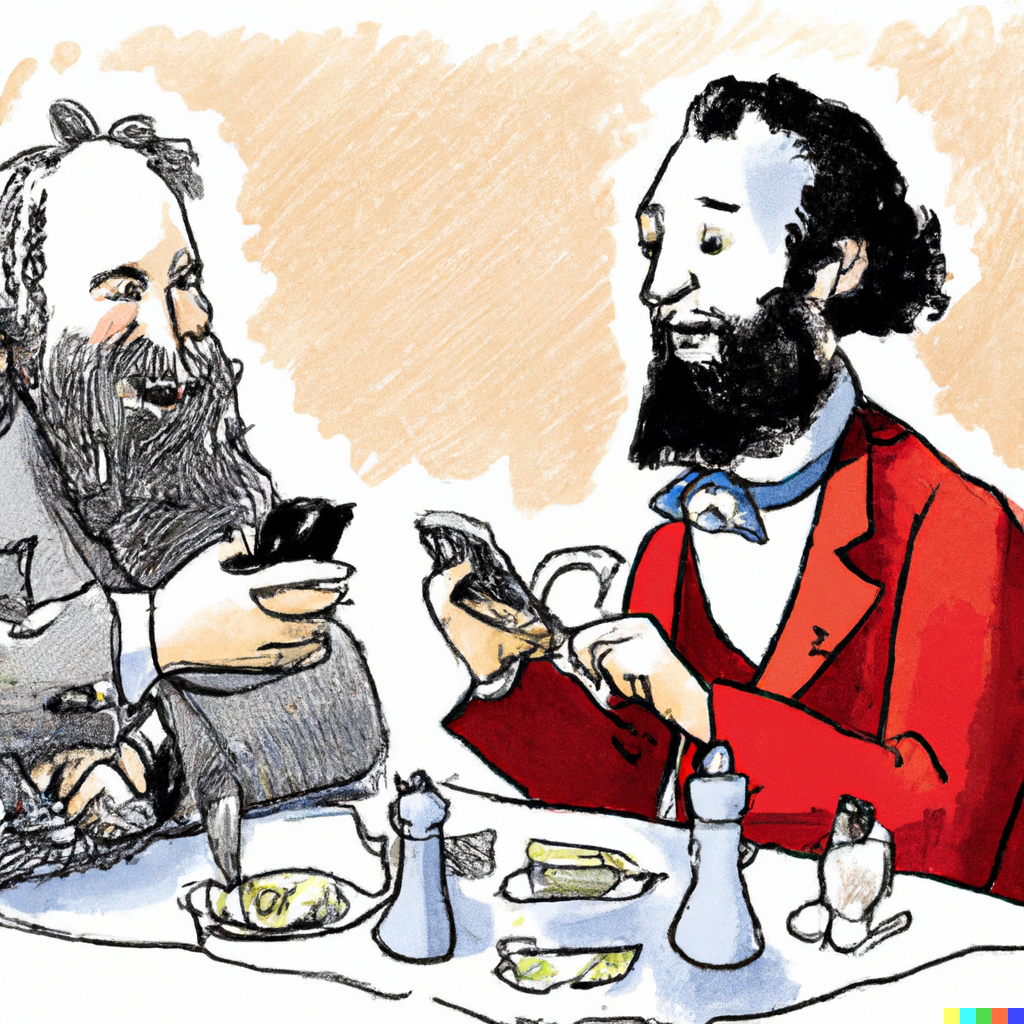

Prompt: I am intrigued by the ethical implications surrounding emerging product features, specifically Buy Now Pay Later. I would like to delve into the perspectives of influential philosophers Karl Marx and John Stuart Mill on this matter. Please craft opinion pieces in a newspaper style, presenting their unique viewpoints on the moral aspects of Buy Now Pay Later.
🤖 [CHATGPT]:
Karl Marx's Opinion Piece:
Unmasking the Chains of Consumer Capitalism: The Dialectics of Buy Now Pay Later
Dear Readers,
As we dissect the Buy Now Pay Later (BNPL) phenomenon, it is imperative to recognize its dual nature - a feature laden with both promises and perils within the framework of capitalist dynamics.
BNPL, at its core, is a financial innovation that allows consumers to defer payment for purchases, seemingly providing immediate access to commodities. Yet, the allure of this seemingly benevolent feature belies its insidious consequences. The merit, as perceived by the bourgeoisie, lies in the perpetuation of a culture of consumption, driving the engine of profit. However, the risks are far-reaching, as the working class is ensnared in a web of debt, becoming unwitting subjects in a capitalist play.
The moral aspects of BNPL are intertwined with the ethics of consumer capitalism. On one hand, the immediate access to goods provides a semblance of equality; on the other, it deepens the chasm between the haves and the have-nots. The morality of such a feature hinges on the ethical question: Is it just to lure individuals into a cycle of indebtedness for the perpetual enrichment of the capitalist elite?
The central ethical dilemma here is not the mere development of BNPL but the profound consequences it poses. It forces us to confront the question: Just because we can offer instant gratification through deferred payments, does it mean we should perpetuate a system that exploits the laboring masses for the benefit of the few?
In solidarity,
Karl Marx
---
John Stuart Mill's Opinion Piece:
---
John Stuart Mill's Opinion Piece:
Embracing Freedom in Finance: A Utilitarian Defense of BNPL
Dear Readers,
In exploring the ethical dimensions of Buy Now Pay Later (BNPL), I, John Stuart Mill, champion the cause of individual freedom and personal autonomy within the marketplace.
BNPL, as a financial innovation, represents a commendable stride towards expanding personal liberty. It allows individuals to make purchases without immediate financial constraints, fostering a society where the pursuit of happiness is not hampered by economic barriers. The merit lies in the empowerment of consumers, granting them the freedom to access goods and services without undue burdens.
Certainly, the risks are present, as with any freedom. BNPL demands responsible decision-making from individuals to avoid falling into a cycle of indebtedness. However, it is my firm belief that individuals should be trusted with the agency to make choices that align with their own conception of happiness.
The ethical aspects of BNPL hinge on the principles of individual responsibility and informed decision-making. Rather than paternalistic intervention, I advocate for fostering a culture of financial literacy and personal accountability. The question then becomes: Just because we can provide individuals with the freedom of BNPL, does it not align with the principles of personal autonomy and utility to trust them to navigate this terrain responsibly?
In defense of freedom and the pursuit of individual happiness,
John Stuart Mill
---
Image prompt: Karl Marx and John Stuart Mill paying for lunch using their smartphones